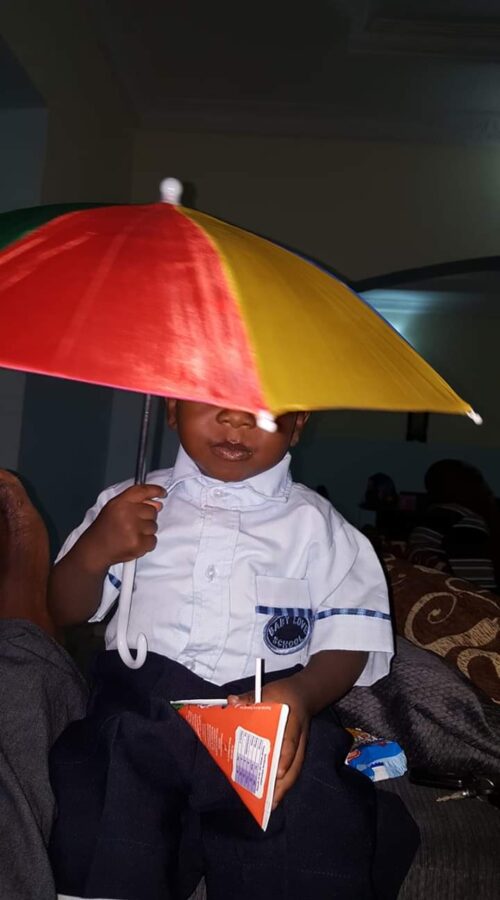Educational Issues
Stop killing our kids… -By Abdullahi O. Haruna
A hurried child is deprived of his natural growth process and in the long run, you have a bitter and sad child. We saw it in the tragic life of Micheal Jackson who was denied childhood experiences only to remain a child even in adulthood.

Nothing is more punishing than waking the kids up every morning , seeing them stretch in agony from a short-lived sleep. Five hours in school, they are back home again for another round of engaging routines. The routine continue daily . Where then is the time for their interaction with nature? Pitiable, the life of our kids are weaved round the dictates of western curriculum . from the content of their textbooks to the themes of their cartoon.
Call me what you like, the kids aren’t engaging in any summer lesson, in fact, there isn’t going to be any home lesson crap. The kids are born to be free , they are not born to be slaves of western education . if the normal school they go to isn’t enough for their liberation, let they fail in knowledge. Because we want to be modern, we deprive kids of their intimate socialization and hasten their growth into robotic adults. From all the rush of our kids for early education, how many inventors have we produced in Nigeria.? What is the sense in having foundation class, pre-nursery , nursery and primary when the child can be allowed to grow and begin a proper learning process. It is good to make money by school owners but not at the detriment of the mental health of our kids.
This may not be plausible but I know that our kids are being enslaved with the template of early education. And this hurried educational voyage is telling graveling on the overall wellbeing of our kids, that is why they go to the university and become total wrecks. A hurried child is deprived of his natural growth process and in the long run, you have a bitter and sad child. We saw it in the tragic life of Micheal Jackson who was denied childhood experiences only to remain a child even in adulthood. That suicide rate is high and common among school kids should tell you how grave the issues are. A child deprived of normal life is easily consumed by the burden of depression.
In Japan , children enter elementary school after their sixth birthday. They are not hurried into uncertain world of borrowed knowledge, they are first introduced to the Japanese language where mathematics, sciences, music, crafts forms essentially the core thrust of their learning. The kids are made to clean their classrooms, hallway, toilets and eat together. This virtue they shocked the world with recently during the world cup in Brazil when after the Japanese game against their opponent, they took to the stadium cleaning up the remains of the debris left by spectators! It was a fascinating delight to watch as age long of value was manifested in the global scene for the world to learn a lesson of training children into responsible adults.
Teaching in Japan is about the quality of lessons, not quantity. The Japanese say that if you teach what you learn, you will remember about 90 percent. If teachers stand at the board and just lecture, through mere listening, the students will retain far less — say, 40 percent — so it’s far more effective to have them discussing problems and teaching each other. Also, it’s important to have very little downtime or rest time and to constantly keep them motivated. Japan has one of the world’s best-educated populations (with 100% enrollment in compulsory grades and zero illiteracy). Japanese state education system is a national pride in the world, with a traditional approach that has helped Japanese pupils easily outperform their counterparts all around the world. Most schools operate on a three-term system with new school years starting every April. Except for the lower grades of elementary school, an average school day on weekdays lasts for 6 hours, making it one of the longest school days in the world. Even after the school ends, children still have drills and other homework to keep them busy. Vacations are 6 weeks long during summer break and about 2 weeks long during both in winter and spring breaks. There is often homework during these vacations. Every class has its own classroom where students take all the courses, except for practical trainings and laboratory work. During elementary education, in most cases, one teacher teaches all of the subjects in each class. The number of students in one class is usually under 40. However, in the past, because of the rapid population growth, this number was lot higher, exceeding 50 students per class.
As Progressive as Japan may be as one of the most advanced countries in the field of science and technology, pencil,pen and paper is still preferred over electronic devices. Unlike here where kids are exposed to avalanche of electronics devices. This limits their thinking ability as they rely more on machine-assisted results. One of the takeaways from the Japanese system of education is conflict resolution.
Time we discard our overburdening of our kids with borrowed and choking curriculum to things that are indigenous and practical to our realities. Our children must be free from the shackles of borrowed culture.
Critically musing



















